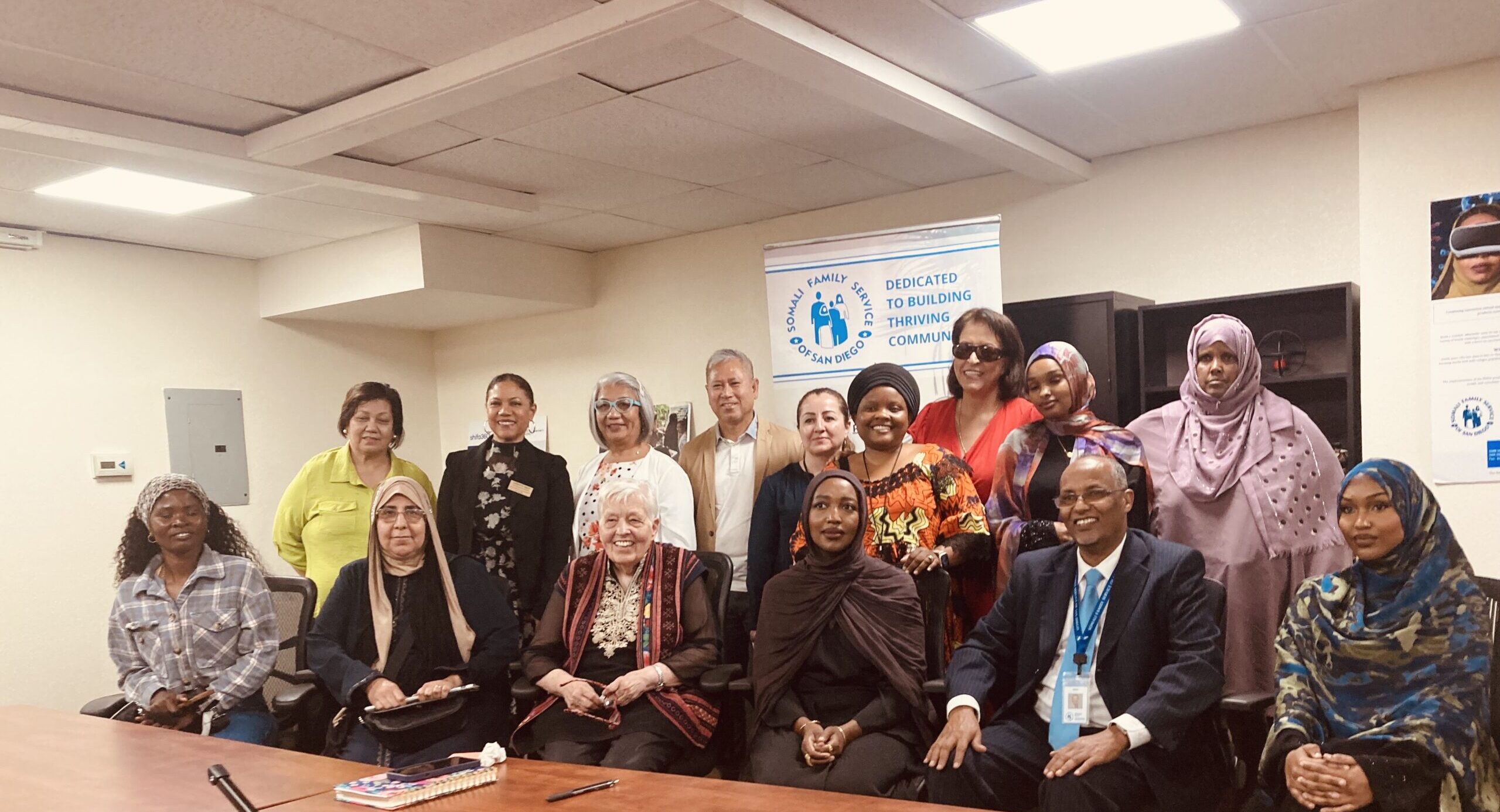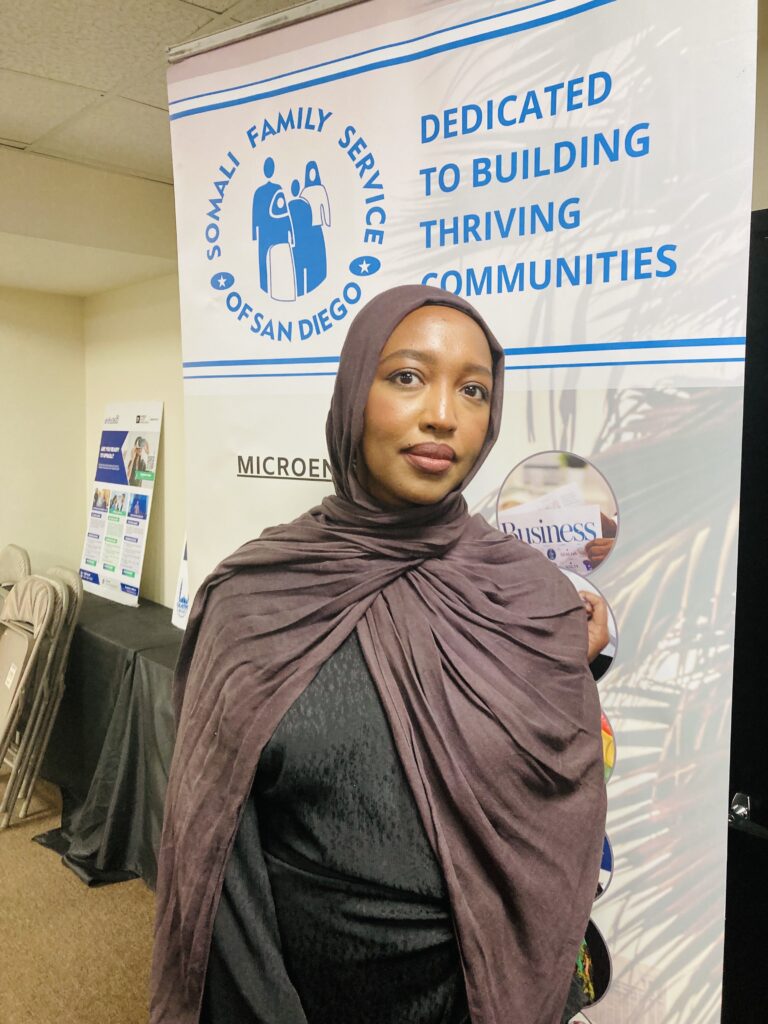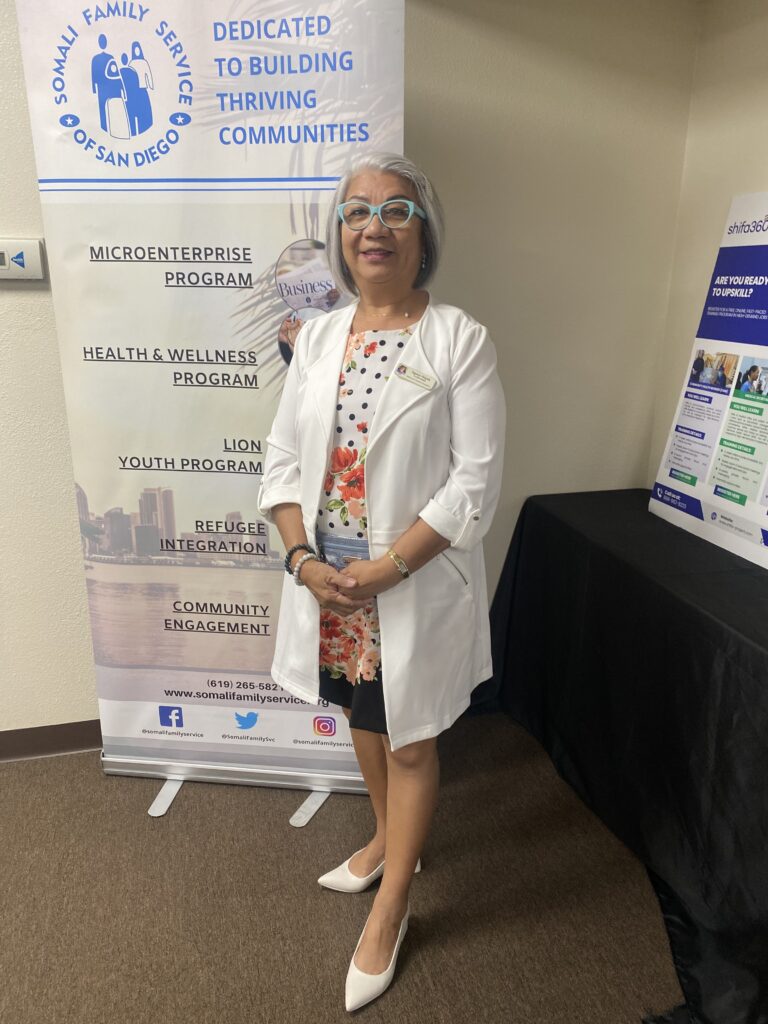Ethnic Media Services | The Filipino Press
SAN DIEGO — New behavioral health services through Medi-Cal are available for the Somali community of San Diego, Somali Family Health Services (SFHS) leaders through an unprecedented Medi-Cal initiative, clients and community members discussed during an on-site roundtable.
The Thursday, July 11 lunch meeting was held at the SFHS headquarters in San Diego, California.
Established as a non-profit, community-based social service organization in 2003, Somali Family Services has been active in addressing key issues linked with refugees, immigrants and underserved people, particularly including matters surrounding mental health.
According to its director of health and wellness, Najla Ibrahim, the organization provides services not only related to health, but also to employment and immigration.
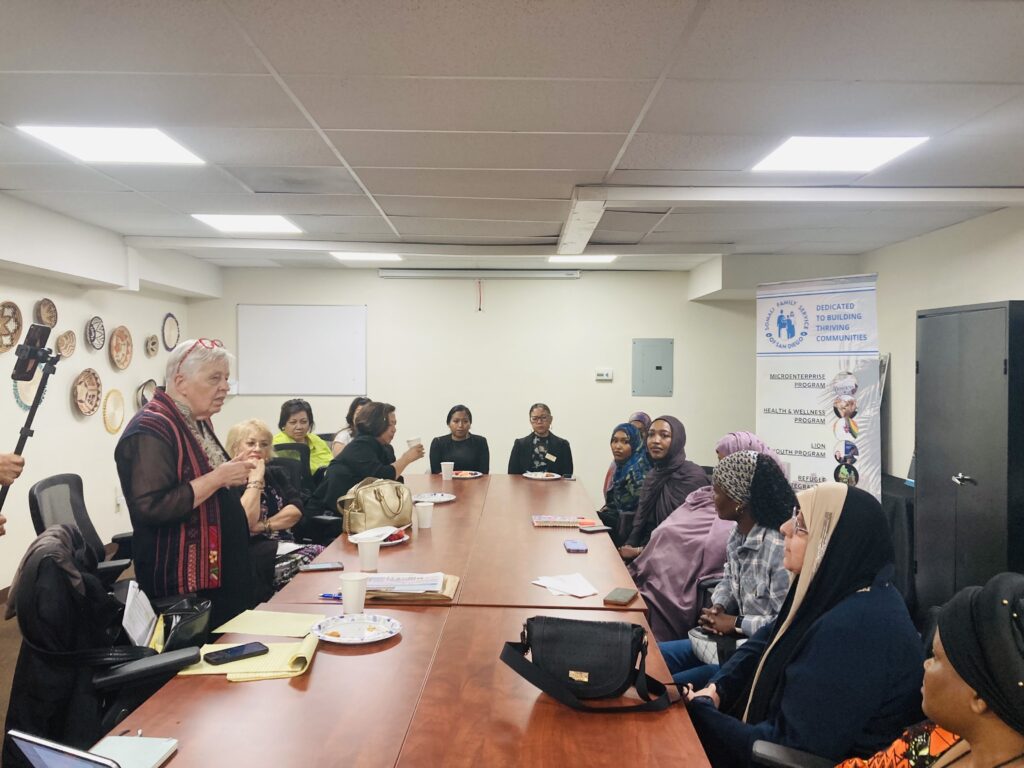
“Mental health is often difficult to access,” said Ibrahim. “But now, we’re establishing a center within this building that will understand the cultural and religious nuances of the matter.”
SFSH currently serves over 20 ethnic refugee and immigrant communities in San Diego County. The staff itself is multiethnic multilingual, collectively speaking over 10 languages including Tagalog, Arabic, Pashto, Farsi/ Dari, Swahili, Haitian, Creole, Kirundi, Kinyarwanda, Oromo and Amharic.
Ibrahim said the Somali community in particular is still learning a lot about depression, anxiety, and stress, as many are challenged in affirming these things exist despite denials by other community members, even by those affected by these problems.
She added that SFSH is using Medi-Cal to bolster programs addressing substance use by youth, focusing on prevention and recovery.
At the meeting, SFSH health workers said that CalAIM — a multiyear initiative to expand Medi-Cal programs like the community-based behavioral health services at SFSH — was an unprecedented transformation of public health.
Agnes Hajek, a Filipino-born behavioral health consultant, said that implementing CalAIM at SFSH involved the integration of screenings for depression, anxiety, and trauma.
Through its transformation of Medi-Cal, California was at the vanguard nationwide in treating one’s physical and mental health condition “as related”, she added.
“The good thing with Somali Family Service is that our community health work touches the power of language and cultural knowledge,” Hajek continued. “We train our staff how to ask questions geared towards suicide prevention, for example, in a culturally sensitive way, as screening is crucial to detect and prevent serious matters like this.”
Uncontrolled asthma was another behavioral health issue facing the Somali community.
Health workers present at the event shared their experience in guiding clients in improving their lifestyle through various activities, with a few workers noting that their clients are now more aware how to self-manage asthma at home and reduce asthma triggers thanks to asthma remediation programs and work groups available through Medi-Cal at SFSH.
The community health workers present at the SFSH event shared parallel sentiments about Somali immigrants to the United States feeling socially and culturally isolated in their environment, adding that the resulting detrimental impacts to their mental and physical health are now being treated as a unit thanks to new behavioral health programs through CalAIM.
SFSH services like these “are open to everybody,” said Ahmed Sahid, SFSH president and CEO. “We have a very diverse staff speaking different languages, more than 10 of them, and there’s a great deal of collaboration among us.
“Every problem is an opportunity for us to make a difference,” he added. “We invest in our clients and make sure they do not fall into the cracks. We cover anything you can think of, from health care and advocacy, to employment, microenterprise and education.”
During the discussion, most of the attendees were women, which Sahid said was a testament to womens’ empowerment.
He added that a significant number of women were taking part in SFSH behavioral health care training sessions and directly serving the community: “The passion is there. We are happy to see that clients are benefiting from this show of care.”
“Mental health is a very, very big issue in our community. We’ve been through a lot. We lost loved ones and that created a lot of trauma and overthinking,” said Carolina Festo, a SFS community health workers who experienced the horrors of a humanitarian crisis in her native land, and who then underwent training to help others enduring similar emotional damage.
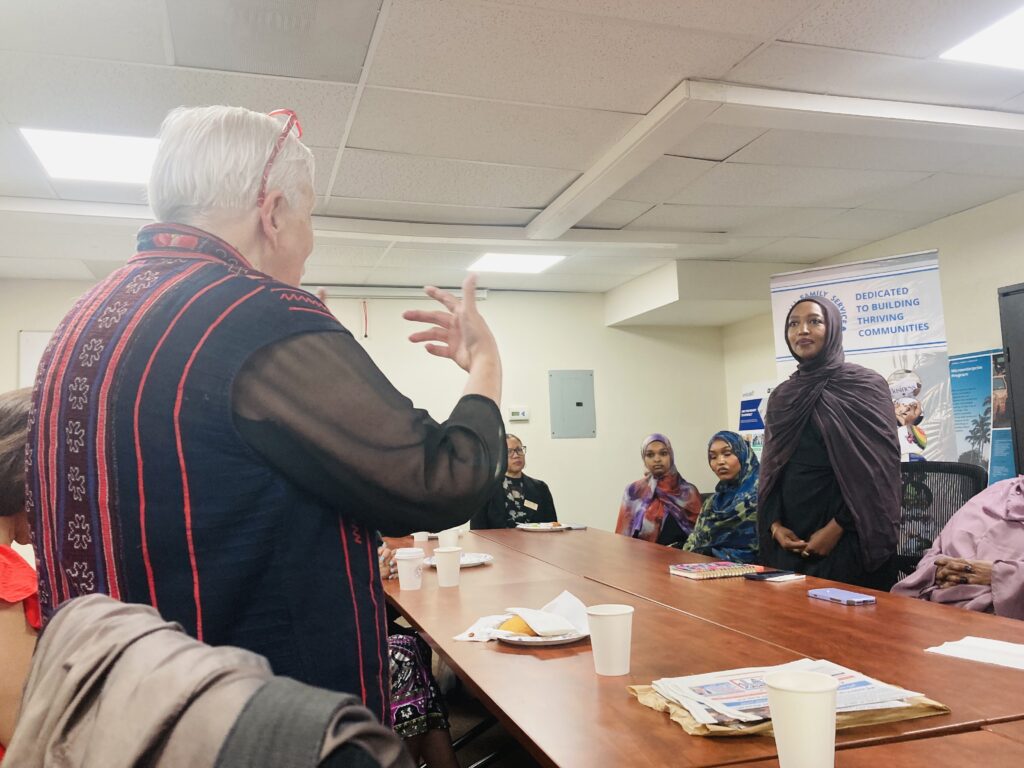
Festo, who came to San Diego as a refugee 18 years ago, shared that she lost her father and endured the trauma of this with her mother in a refugee camp.
As an organization staffed largely by Somali community members, SFHS has catered specially to East African refugees for nearly 25 years. It has also assisted both Asian and African immigrant communities with relocation in San Diego, helping them adapt to their new environment.
“In our community, some people see that the mental health problem is a shame,” noted Festo. “As community workers, we provide the proper service to overcome mental health.”
A major figure in the San Diego East African community, Festo said “I was raised in the community and I want to take that back to the community. I love the community worker job. Through Somali Family Services I found a way to do more for our people, and I’m doing what I love. It’s not only about the check, it’s about what’s inside you. I’m happy to give to communities that need it.”



